Essalamus

I can’t believe that I’ve never featured this sign on the blog before, yet I can’t find a previous mention.
This post was filed under: Art, Newcastle-upon-Tyne, Ouseburn.

I can’t believe that I’ve never featured this sign on the blog before, yet I can’t find a previous mention.
This post was filed under: Art, Newcastle-upon-Tyne, Ouseburn.
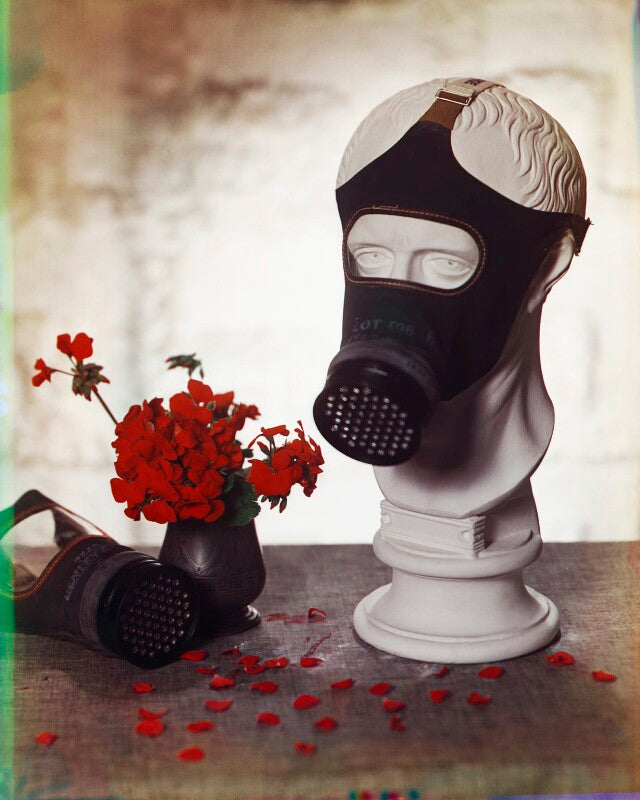
This exhibition has recently transferred from the National Portrait Gallery to The Laing. Before visiting, I knew nothing about Yevonde, but I came away with a real appreciation for her life and work. She was a photographer who developed her practice in the period between the two World Wars, and who was a pioneer of the use of colour photography. There were several strands running through the exhibition that stood out to me.
The exhibition did a good job of helping me to understand how colour photography initially developed. It was a simple process involving taking multiple simultaneous images effectively through multiple cameras, with coloured filters in front of each one. These could then be developed using coloured inks and composited to create a colour image. It’s a simple and logical process, but one that was entirely new to me.
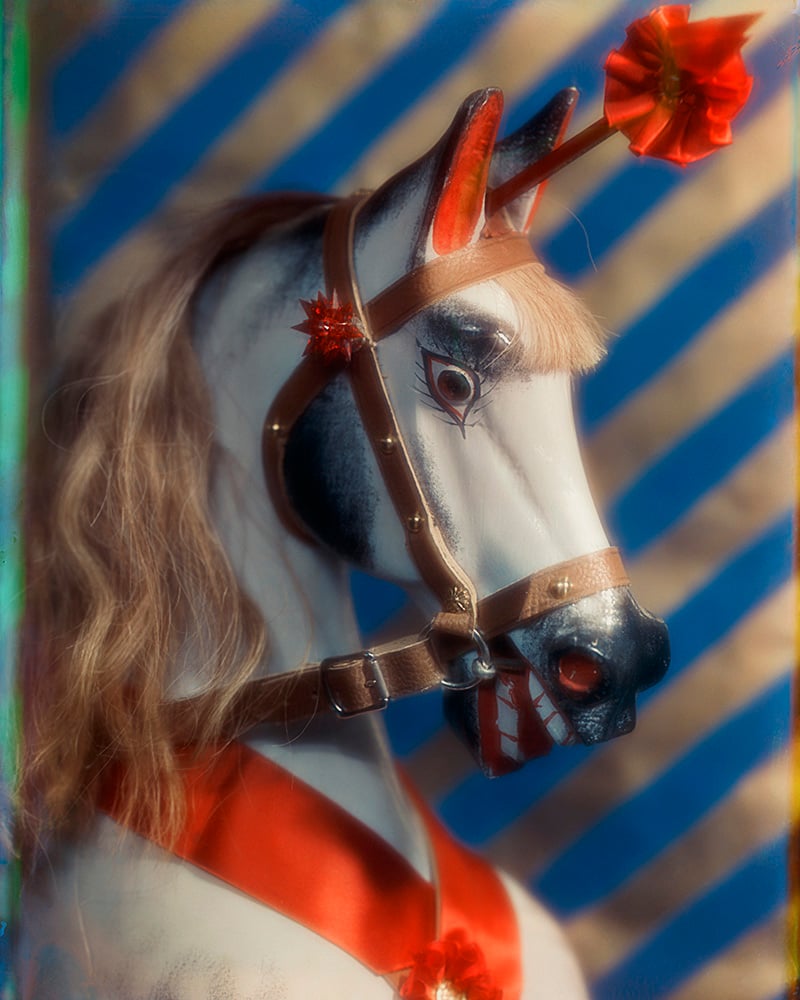
Yevonde developed a distinctive style for her colour photography:
If we are going to have colour photography, for heaven’s sake, let’s have a riot of colour.
My colour perception is pretty poor, but even so, the Vivex photography combined with Yevonde’s compositions seemed stunning vivid on the gallery walls, almost hyperreal. This is perhaps most celebrated in her work photographing women dressed as goddesses.
The exhibition included a small goddess-inspired dressing up corner, and during my visit, this was occupied by a woman who seemed to be having the time of her life, alone in front of the mirror. More power to her.
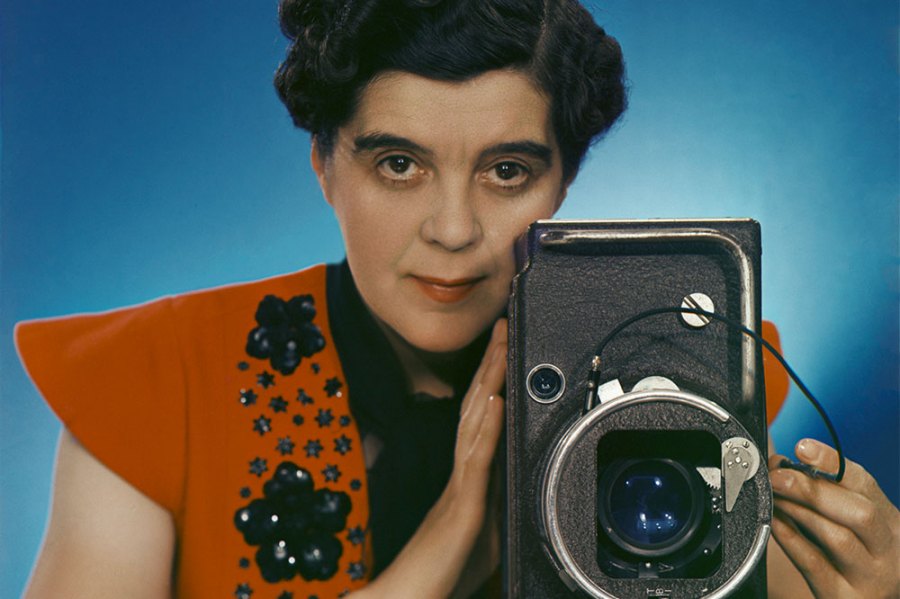
I was interested in Yevonde’s feminism, which was well represented in the exhibition. Most of the human subjects featured in her work were female, and it was suggested that much of her early interested in photography was driven by a desire to be independent.
The duties of a wife with a separate career have yet to be defined, and although complete unselfishness, has always been considered a sure foundation for domestic happiness, I am not convinced.
The curators placed one of the largest of Yevonde’s self-portraits alongside this quotation:
This is not the story of a woman’s life, but the story of a photographer that happens to be a woman.
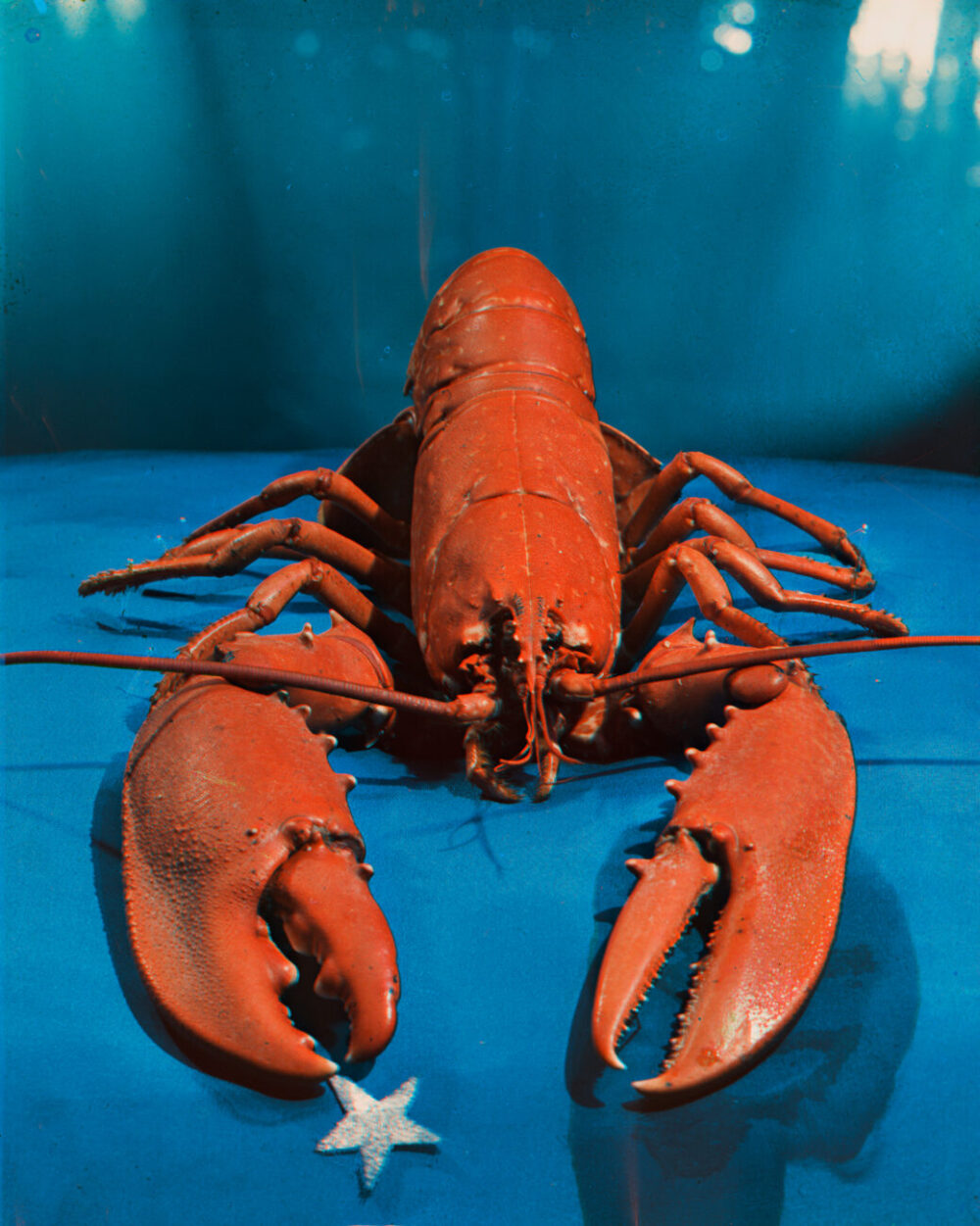
Almost exactly a year ago, I enjoyed the Design Museum’s exhibition on Surrealism. I was therefore interested to see in this exhibition the interaction between Yevonde’s photography, and colour photography more generally, and surrealism. It is surely no accident that the often bright colour of surrealist work came about just as colour photography was beginning to make a splash.
All things considered, I thought this was a great exhibition. I learned things from it and gained new insights and perspectives on the art featured. It was well worth a visit.
Yevonde: Life and Colour continues at The Laing until 20 April.
This post was filed under: Art, Newcastle-upon-Tyne, The Laing, Yevonde.
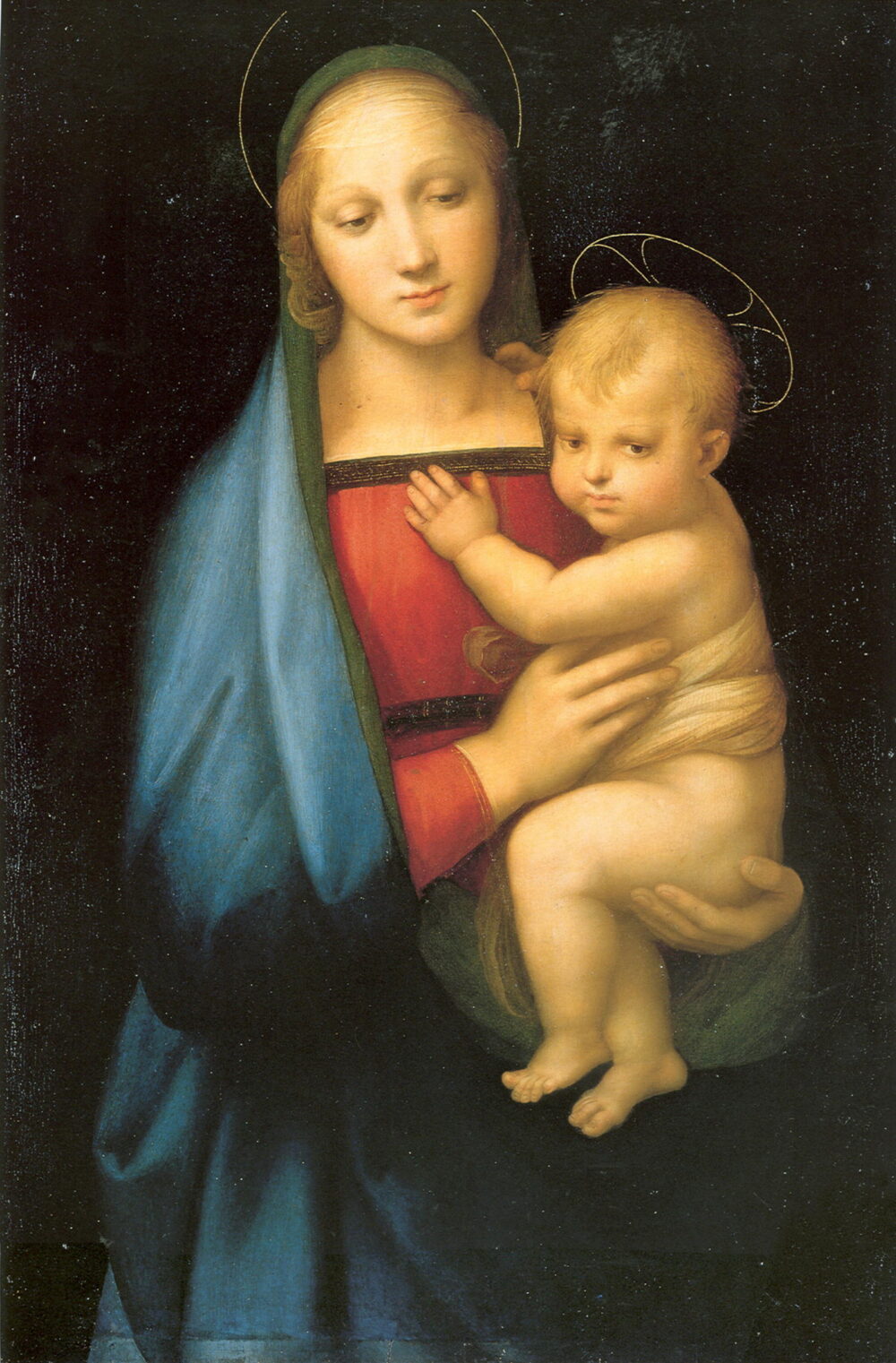
In Lessons, which I’m currently reading, Ian McEwan has a delicious rant about the way in which Christianity held back science and culture for centuries:
But in the Petit Palais, which Daphne had not visited in thirty years, Roland had what she liked to call ‘a moment’. He retired early from the paintings and waited in the main hall. After she had joined him and they were walking away he let rip. He said that if he ever had to look at one more Madonna and Child, Crucifixion, Assumption, Annunciation and all the rest he would ‘throw up’. Historically, he announced, Christianity had been the cold dead hand on the European imagination. What a gift, that its tyranny had expired. What looked like piety was enforced conformity within a totalitarian mind-state. To question or defy it in the sixteenth century would have been to take your life in your hands. like protesting against Socialist Realism in Stalin’s Soviet Union. It was not only science that Christianity had obstructed for fifty generations, it was nearly all of culture, nearly all of free expression and enquiry. It buried the open-minded, philosophies of classical antiquity for an age, it sent thousands of brilliant minds down, irrelevant, rabbit holes of pettifogging theology. It had spread its so-called Word by horrific violence and it maintained itself by torture, persecution and death. Gentle Jesus, ha! Within the totality of human experience of the world there was an infinity of subject matter and yet all over Europe the big museums were stuffed with the same lurid trash. Worse than pop music. It was the Eurovision song contest in oils and gilt frames.
In Acts of Service, which I read some time ago, Lilian Fishman writes about some of the benefits of religion to individuals:
I envied extraordinarily religious people, who subscribed to a code that determined the things they should want, the things that were good, and the things that were bad. They had these measures of certainty. And they had rituals that made their lives feel governed by the logic of time: baptisms, holidays, weekly ceremonies, recitations, prayers. They were, I imagined, striving toward a set of impossible ideals and yet constantly forgiven for their failure to achieve. What better way could there be to live? To be in constant motion toward something perfect, a motion that would carry you to the end of your life?
At the individual level, Fishman recognises the psychological reassurance of conformity which religion can provide. It’s comforting to be part of a group with shared ideals and rituals. Yet McEwan notes that conforming in a way which punishes outliers is harmful, because everyone ends up having the same ideas which amount to nothing more than ‘lurid trash’.
It’s an interesting dichotomy. One of the things that Wendy and I sometimes discuss in day-to-day life is the value of people who don’t conform, and who often rile up others. A bit of friction is often helpful to keep things moving forward. It’s the wild ideas of outliers that sometimes provide the breakthroughs needed to move forward in life, as much as in society at large.
This post was filed under: Miscellaneous, Christianity, Ian McEwan, Lillian Fishman.
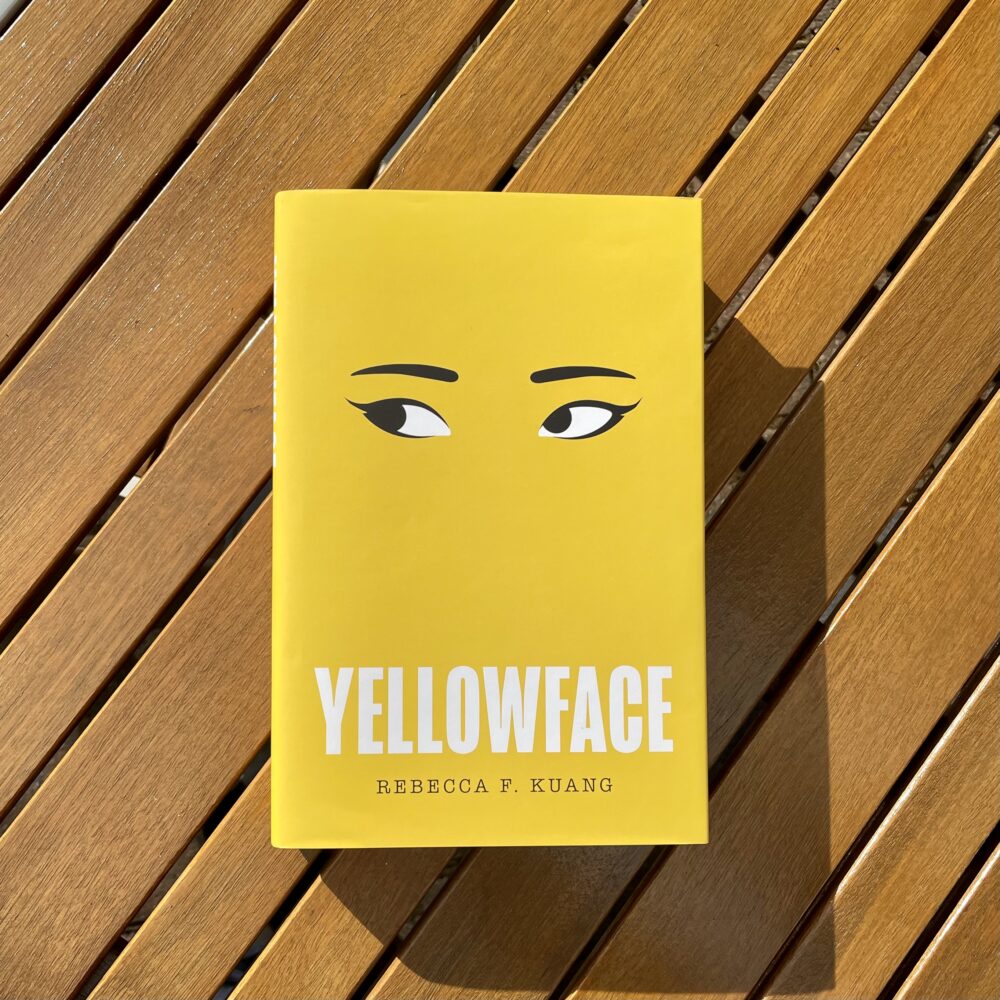
This 2023 bestseller has been in my ‘to read’ pile for so long that Wendy ended up beating me to it. Interestingly, we had similar thoughts about it.
The plot concerns a young writer whose more successful friend dies in an accident. The writer steals an early draft of a novel from her deceased friend, works on it extensively, and publishes it to rave reviews.
This plot is not a million miles away from that of The Plot by Jean Hanff Korelitz, which I read and disliked a few years ago. Kuang’s handling of the subject is much better: she weaves in interesting questions about cultural appropriation alongside the more obvious issues of ownership of ideas and the boundaries of authorship. Kuang’s writing is also much more fun, bringing a satirical view of the culture wars with a wry humour, as opposed to The Plot’s ever-building air of tension.
In her acknowledgments, Kuang says that ‘Yellowface is, in large part, a horror story about loneliness in a fiercely competitive industry.’ I agree with that perspective, and I also think that it represents the better part of the book.
However, Wendy and I both found the final section of this book jarring. There was a quite sudden change in the tone of the book, the style of writing, and the characterisation of the protagonist. It was quite peculiar, and rather lessened the impact of the book for both of us. We debated whether this was intentional: was this a comment on what it’s like to read a book which is ‘finished off’ by another author? Neither of us could quite believe that to be true.
This would have been a better book if the final section had stripped away the satire and doubled-down on the moral complexity of its central questions. It’s a book that deserved an ambiguous ending, but had some dodgy black-and-white thriller content bolted onto the end instead. It was a shame… but I still think the book’s worth reading for the first two-thirds. And I liked this quotation:
Writing is the closest thing we have to real magic. Writing is creating something out of nothing, is opening doors to other lands. Writing gives you power to shape your own world when the real one hurts too much. To stop writing would kill me.
This post was filed under: What I've Been Reading, Jean Hanff Korelitz, Rebecca F Kuang.

Some railway stations, particularly on light rail systems, have platform edge doors that only open when a train arrives. One of the major benefits of these is that they prevent people from falling onto the tracks.
However, they’re relatively uncommon. They’re costly to install and maintain, and are another significant potential point of failure which could prevent people from boarding trains.
But there is a good compromise: if you have consistent trains stopping at consistent points along a platform, you could just fence off the parts of the platform that don’t line up with the doors. Having a large proportion of the platform edge fenced off would seem to provide quite a bit of additional protection against falling onto the tracks.
In New York, the MTA is trailing exactly that.
When I saw this article, I was surprised that I’d never seen this solution tried anywhere else before… and also surprised that I’d never thought of it. Perhaps it has some hidden downsides, but at first glance, it seems such an obvious solution that one might think it would be common. The logic is almost childlike.
It will be interesting to see how the trial turns out.
This post was filed under: News and Comment.
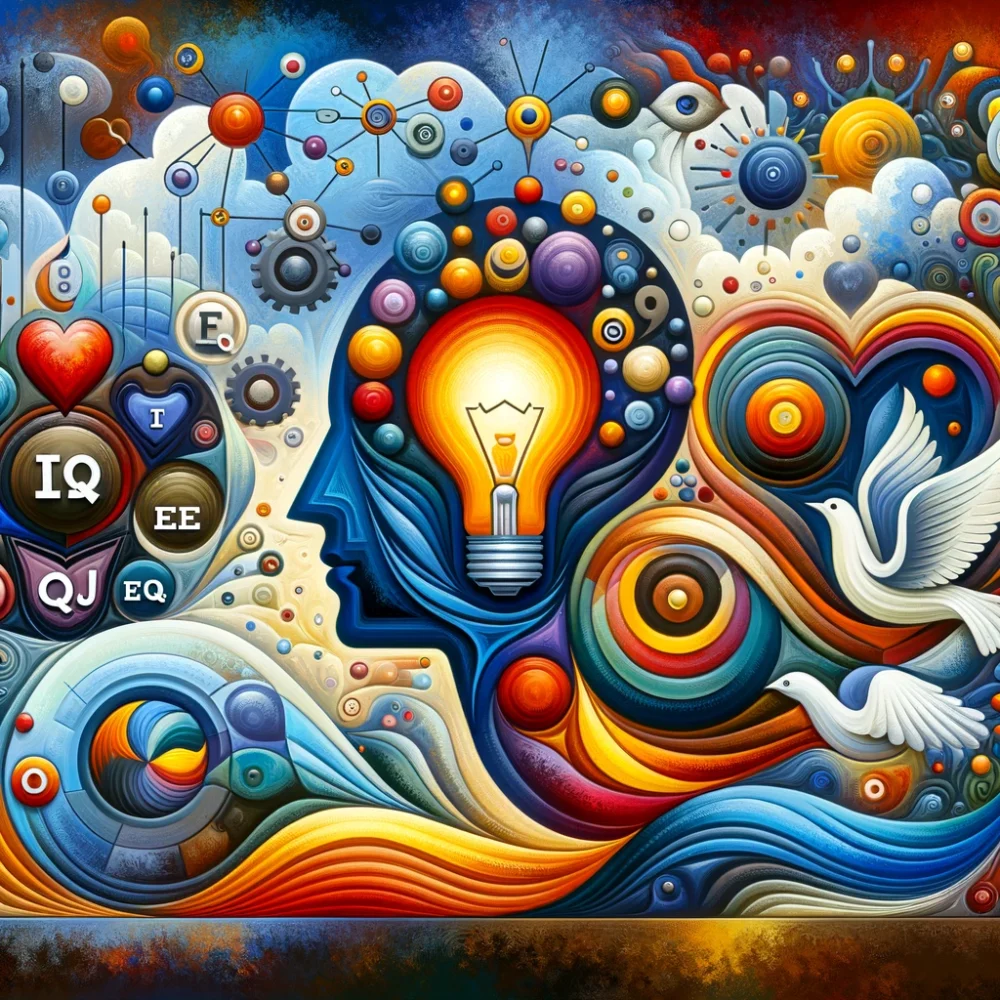
I had to attend some leadership training this week, which is a cross we must all bear from time to time.
The trainer declared that IQ, as in ’intelligence quotient’, was one of only four jointly conceived attributes which make up a rounded person. The others, for what it’s worth, were cited as the ‘emotional’, ‘physical’ and ‘spiritual’ quotients.
The trainer explained that the word ‘quotient’ shared a root with ‘quadrant’ and was chosen because there were four domains.
My bullshit antennae were firing so intensely at this point that they may have been visible if it wasn’t quite so long since I last cut my hair. Yet, at least the trainer’s misplaced confidence made me spend a few minutes reading around the topic from sources more reliable than the course’s tie-in leadership paperback.
The Oxford English Dictionary says that ‘quotient’ is a direct borrowing from the Latin ‘quotiens’ meaning ‘how many times’ or ‘how often’. In the ‘intelligence quotient’ sense, it’s referring to the quantity of intelligence. There’s no historical or modern sense in which it connects to a sense of there being four parts.
The prefix ‘quadr-’, as I should have remembered from school, comes from the Latin numeral ‘quattuor’.
But what about IQ? I should have remembered this, as I recall presenting on it during a special study module I took in learning disabilities a couple of decades ago. It was created in the early 1900s by the German psychologist William Stern as a standardised figure for monitoring child development: simply divide their ‘mental age’ by their ’chronological age’ and multiply by 100.
EQ is rooted in more modern psychology, while PQ and SQ seem to be modern inventions by leadership gurus, keen to repackage and upsell ancient philosophy.
I may have been cynical about the course, but it clearly has made me learn something.
This post was filed under: Health, Oxford English Dictionary.

‘Take the National Express,’ sang The Divine Comedy, ‘when your life’s in a mess.’
‘It’ll make you smile.’
In 2017, my life was in a temporary mess due to train disruption between Newcastle and Leeds, when I needed to get to a meeting. I paid the princely sum of £4.00 for the privilege of a 2 hour and 40 minute odyssey via Sunderland and Middlesbrough.
Yesterday, thanks to industrial action on the railways, I paid £16.30 to do the same journey in reverse.
Few would relish spending the better part of three hours on a mildly nauseating coach, especially when a train will normally do it in half the time. The ticket for the cancelled train cost only £19.20, so even the price advantage seems minimal these days, at least on this route and on this day. On a train, there are no signs exhorting you to tip the driver, and nor does one feel a mild sense of guilt for failing to do so (who carries cash these days?)
But the coach is fine. I’d happily pay twice over for someone else to drive me up the A1(M) instead of having to navigate it myself in the dark and the rain. It even means I can have a glass of wine with dinner. Throw in a reasonably comfy seat, a charging socket and some free Wi-Fi and who can argue? The coach was also reasonably to timetable on both occasions.
It wouldn’t be my first choice, but on both occasions, it got me out of a hole. The Divine Comedy were right: it did make me smile.
This post was filed under: Travel, National Express, The Divine Comedy.
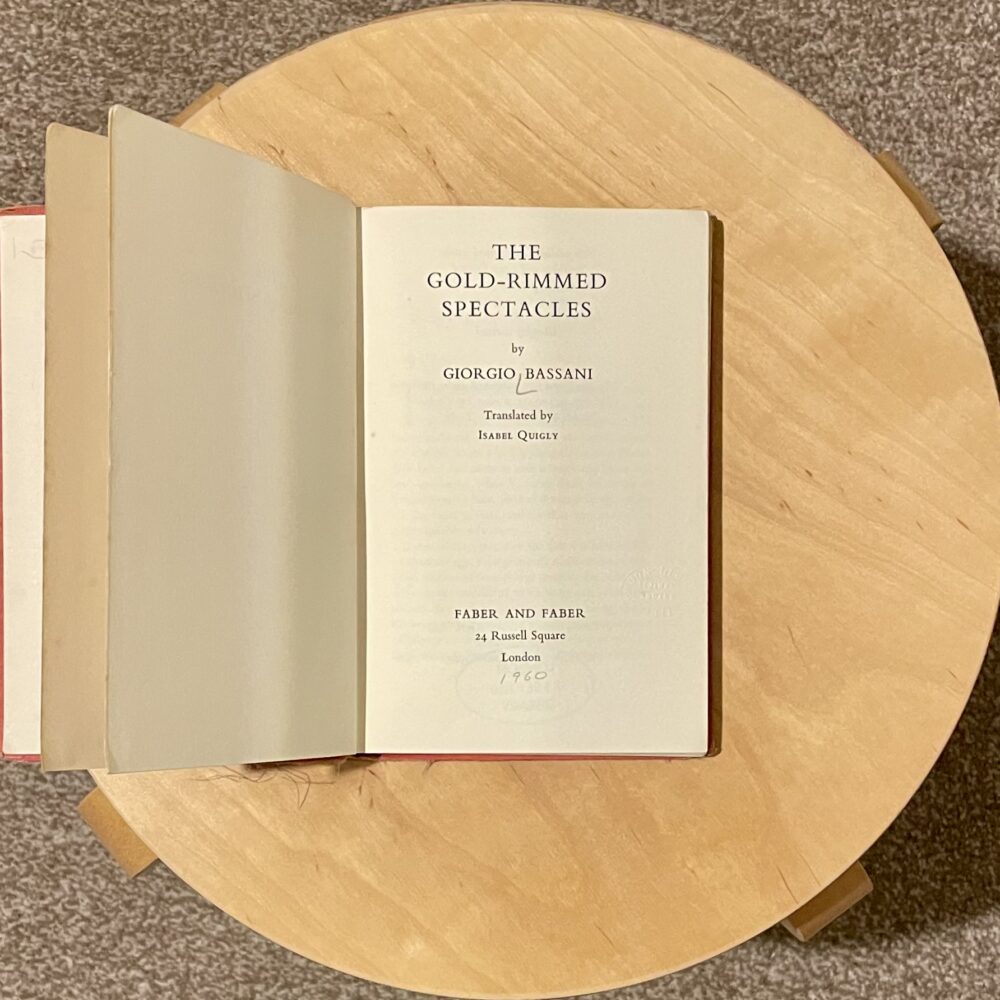
This 1958 Italian novel is set in Ferrara, a town in northern Italy, in the 1930s. I read the 1960 English translation by Isabel Quigly.
The novel centres on Dr Fadigati, who opens a practice in Ferrara. His surgery quickly becomes the fashionable option in town, and Fadigati is widely respected. He is noted to keep his personal life private. As the decade wears on, it gradually becomes known that he is gay, and he finds himself more and more ostracised as a result. At the same time, the Jewish narrator feels increasingly threatened by tightening racial laws.
It’s easy to see why this is an ’important’ book given the topics it covers. It does a good job of illustrating the creeping nature of intolerance, and it felt evocative of a small Italian community.
Yet, I can’t really say that I enjoyed it. It felt a little slow, despite its slim form. It also didn’t feel very reflective in tone, which I suppose must be attributable to the style of writing. I think it might also be one of those books that’s of its time: I suppose my response to a story involving a gay doctor is likely to be different to that of the average reader in 1960.
I don’t really feel motivated to go on to read any of Bassani’s other Ferrara novels, but you may feel differently if you read it.
This post was filed under: What I've Been Reading, Giorgio Bassani, Isabel Quigly.
In their email newsletter at the weekend, Rob and Marcus—the editors of Delayed Gratification—wrote:
It’s said that the past is a foreign country, and just ten years ago the world certainly looked rather different. Referendums on Scottish independence and Brexit were still to come, the word ‘pandemic’ sounded like something from a sci-fi novel, and the notion of a game show host – who at the time was busy spreading racist lies about Barack Obama’s birthplace – becoming president himself was absolutely preposterous.
It’s been a heck of a decade.
This post was filed under: News and Comment, Delayed Gratification.
The content of this site is copyright protected by a Creative Commons License, with some rights reserved. All trademarks, images and logos remain the property of their respective owners. The accuracy of information on this site is in no way guaranteed. Opinions expressed are solely those of the author. No responsibility can be accepted for any loss or damage caused by reliance on the information provided by this site. Information about cookies and the handling of emails submitted for the 'new posts by email' service can be found in the privacy policy. This site uses affiliate links: if you buy something via a link on this site, I might get a small percentage in commission. Here's hoping.